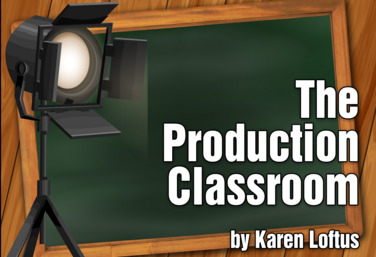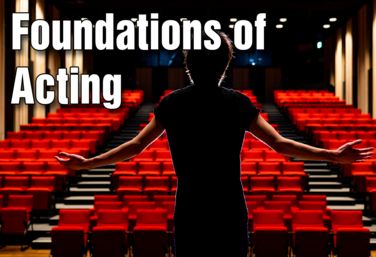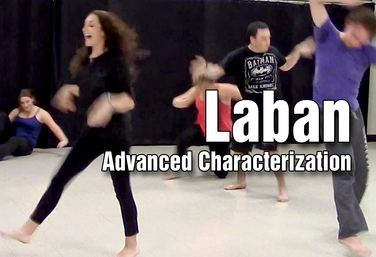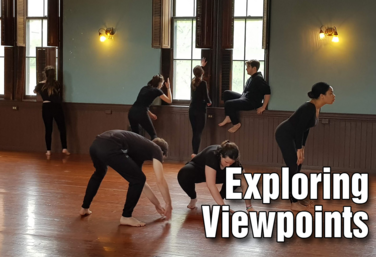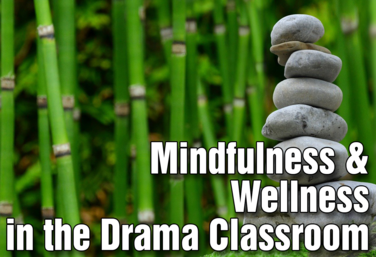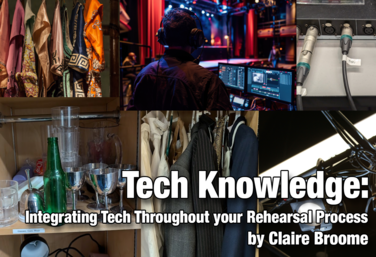Ontario, Canada
Grade 11 - Foundations - Responsible Practices
View all Standards for Ontario, Canada
C.3.1 identify and follow safe and ethical practices in all drama activities
Part of the Production Classroom Units Curriculum
Part One - Pre-Production
by Karen Loftus
In Part One of The Production Classroom, you’ll take your students through a series of pre-production units designed to help students gain as much comprehension as possible about putting on a successful production.
Read More...
Read Less...
Part of the Production Classroom Units Curriculum
Part Two - Rehearsal and Performance
by Karen Loftus
Part Two offers articles on each step in the process, samples and forms, a suggested pacing, role definitions and task checklists, an outline for a typical class, as well as performance duties. This section also outlines the assessment piece for The Production Classroom – the production binder.
Read More...
Read Less...
Part of the Production Classroom Units Curriculum
Part Two - Documents
by Karen Loftus
This section provides samples and worksheets for actor forms, costume department, general binder, lighting and sound, marketing samples, scenic and prop samples, and stage management and production manager samples and forms.
Read More...
Read Less...
Part of the Production Classroom Units Curriculum
Part Three - Reflection and Assessment
by Karen Loftus
Part Three provides a Post-Performance Reflection. Unpack the experience with students, reflect back on what went right and what could be changed for next time. A written Reflection is included as well as a Rubric for student production binders.
Read More...
Read Less...
Foundations of Acting
by Annie Dragoo
Students will demonstrate an understanding of the foundations of acting. At the end of the unit, students will be able to understand the value of making rich acting choices on stage.
This unit gives students an opportunity to explore and develop acting skills on a more advanced level, regardless of experience. They will explore skills, including voice, movement, emotional recall, memory, playing objectives, and character development culminating in a final scene.
Read More...
Read Less...
Laban: Advanced Characterization
by Todd Espeland
Learn about the Laban system to teach your students to physically and vocally discover character. This is an advanced course, which means that the course goes deep into exploring character and exploring character work through the work of Rudolph Laban.
Read More...
Read Less...
The Production Classroom
by Karen Loftus
In The Production Classroom, instructor Karen Loftus will show you how to explore ways that you can produce shows during your regular class time. The course gives you a series of exercises and reflections that help you determine everything, from the type of show you may want to do, to the way you can divide up your class and responsibilities, to specific assignments that will keep your students engaged and focused.
The Production Classroom is the ultimate in project-based learning. Students learn to work collaboratively while setting goals and working towards a successful finished project. The course includes exercises and strategies to use with students to help assure their success in the production. Multiple examples and anecdotes help you to envision what the production classroom could look like in your room, performance space or theatre.
Read More...
Read Less...
Exploring Viewpoints
by Erin Carr
Viewpoints is used to create dynamic moments of theatre by simply existing on the stage. However, Viewpoints is more than just an acting technique to understand your own physicality and more than a directing technique to create “ah-ha!” moments on stage. It is first and foremost the philosophy that to create an organic performance, you must see obstacle as opportunity, and that by simply standing in space, your creativity can spark.
This course by Erin Carr will help your students discover fresh impulses that motivate their performance in the moment. We will go through the Viewpoints technique, as created by Mary Overlie, and learn how to tap into kinesthetic awareness as individuals and as an ensemble. Through this style of play, students learn to release their thoughts on what they “should” do, and instead just respond organically to their surroundings and ensemble!
We’re going to break down each of the Viewpoints, there’s lots of visual demonstration, so you can see each Viewpoint in action, and I’m going to provide tips and side coaching examples.
Read More...
Read Less...
Mindfulness & Wellness in the Drama Classroom
by Claire Broome
In this course, instructor Claire Broome shares what mindfulness is, and why it is so important in the Drama Classroom. The course covers how mindfulness and wellness can help both students and teachers.
Claire discusses how to prepare students for this kind of learning, and provides various activities to bring into your classroom, as well as a variety of extensions for these activities that can be applied to character creation and possible projects.
Read More...
Read Less...
Tech Knowledge: Integrating Tech Throughout Your Rehearsal Process
by Claire Broome
This course will help you integrate technical theatre earlier in the creative process to help reduce the stress of tech week, and make sure you have what you need before choosing a show. We will explore how to include your technical theatre team from day one and will help you have an easier experience throughout the rehearsal process and final performances.
Read More...
Read Less...
View all Standards for Ontario, Canada Standards Master List
© Copyright 2015-2025 Theatrefolk
